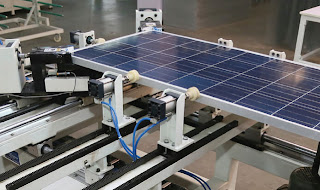Why Choose Ammonia Cooling Systems Over Traditional Refrigerants?
Discover a wide range of high-quality air conditioning solutions tailored for the Lebanese climate at Farjallah. Our extensive selection of energy-efficient systems ensures optimal comfort and reliability, making us a trusted choice for all your cooling needs. Whether you're looking for residential or commercial air conditioner in Lebanon, our expert team is here to help you find the perfect fit for your space in Lebanon. Enjoy the ideal indoor environment while benefiting from our commitment to sustainability and innovation. Choosing cooling systems over traditional refrigerants offers numerous advantages, particularly in a climate-conscious world. From superior efficiency and environmental friendliness to compatibility with renewable energy and long-term cost savings, ammonia stands out as a leading choice for air conditioning solutions. For those in Lebanon looking to invest in sustainable cooling options, considering ammonia is not just an option; it’s a smart and responsible decision. As we continue to seek ways to minimize our environmental impact, embracing innovative technologies like ammonia cooling systems will be essential for a sustainable future. As the focus on renewable energy Lebanon grows, integrating sustainable practices into cooling systems becomes increasingly important. Ammonia cooling systems are highly compatible with various renewable energy sources, such as solar and wind. By utilizing renewable energy to power ammonia-based systems, users can drastically reduce their reliance on fossil fuels. This synergy not only enhances the sustainability of cooling operations but also promotes energy independence, which is vital for a nation striving for a greener future. For more details read the blog - https://medium.com/@farjallah845/why-choose-ammonia-cooling-systems-over-traditional-refrigerants-eb5e73d78eda




Comments
Post a Comment